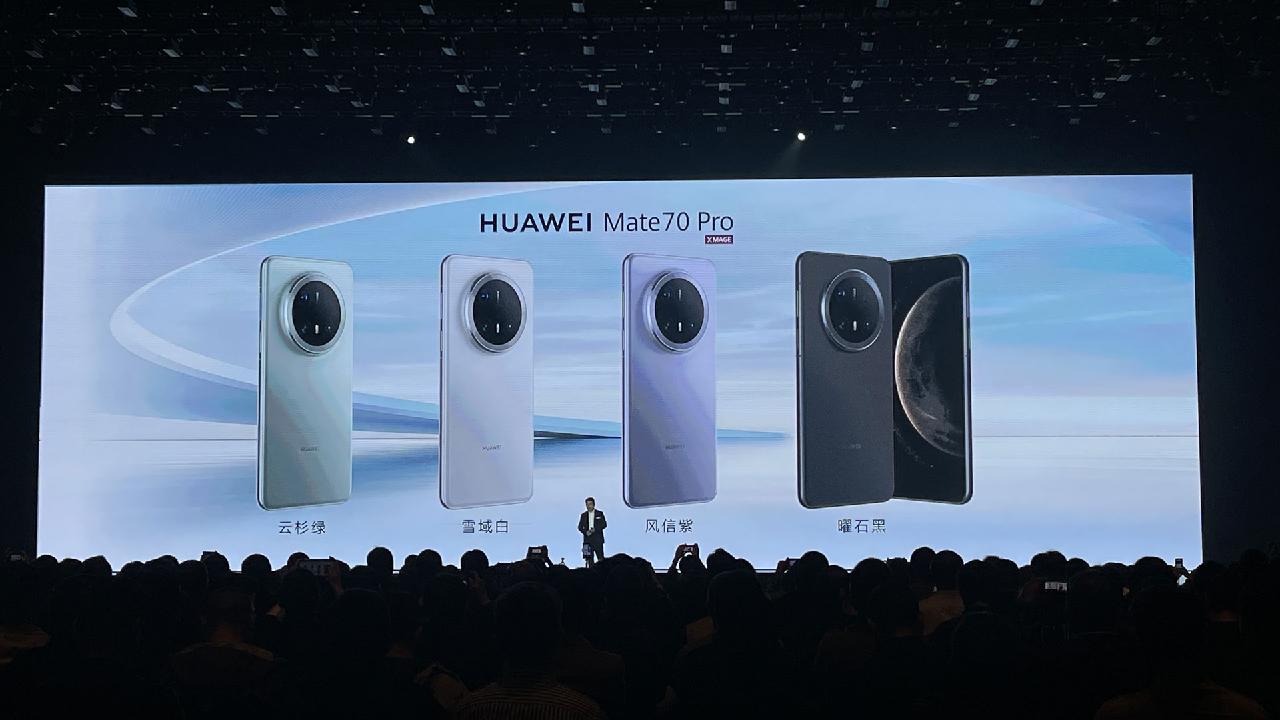Huawei Introduces Mate 70 Phone Series Featuring Android Competitor "HarmonyOS Next"
Huawei has unveiled its Mate 70 phone series, featuring the innovative HarmonyOS Next, which positions itself as a competitor to Android.

During the launch event in Shenzhen, located in south China, Yu Chengdong, head of Huawei's consumer business, stated that "the only phone that can be better than a Mate is a new Mate."
Yu refrained from disclosing the system-on-a-chip— the most critical chip in a smartphone—similar to previous launch events. Instead, he emphasized the Mate 70's AI capabilities, including enhancements for photos and videos, the ability to recognize strangers looking at the screen, and real-time call translation.
Starting at 5,499 yuan, the Mate 70 series has garnered over 3 million pre-orders on Huawei's online store.
Another significant shift from the Mate 60 series is the operating system: the Mate 70 now exclusively utilizes HarmonyOS Next, establishing a mobile app ecosystem distinct from both Apple iOS and Android.
Testing indicates that average users of the new OS can only install apps via the included store, while more advanced users have the option to sideload third-party apps. HarmonyOS Next also introduces enhanced privacy features by restricting app permissions. In older operating systems, sending a photo through an app required granting access to the entire photo gallery. In contrast, HarmonyOS Next lets users permit access to only specific photos, effectively concealing the rest of the gallery.
These developments foster a new app ecosystem primarily controlled by Huawei and its users, often referred to as a "walled garden" by many software developers.
Responses on Chinese social media have been mixed; while some smartphone enthusiasts welcomed the new OS for increasing competition in the market, others expressed skepticism about the challenges of creating a new ecosystem, even for a prominent company like Microsoft.
Huawei has indicated that over 15,000 apps and meta-services are currently available for users, with the number still growing. Beta testers have shared videos on social media showcasing Tencent's WeChat—one of China's most popular apps—functioning on the new system.
In addition to the Mate 70 series, Huawei unveiled the Mate X6, its latest foldable smartphone. The premium variant of the Mate X6 offers support for Beidou satellite messaging, Tiantong satellite network, and a new low-orbit satellite internet service set to be introduced in the latter half of 2025.
Huawei's luxury smartwatch, the Huawei Watch Ultimate Design, has been upgraded with a sapphire crystal bezel for an enhanced aesthetic. Additionally, the Huawei Watch D, which measures blood pressure, has been refined for decreased size and weight.
The company also launched several additional products, including the FreeBuds Pro 4 featuring lossless audio playback and the Q7 home network router, which supports Wi-Fi 7 and Nearlink technology.
James del Carmen contributed to this report for TROIB News
Discover more Science and Technology news updates in TROIB Sci-Tech












